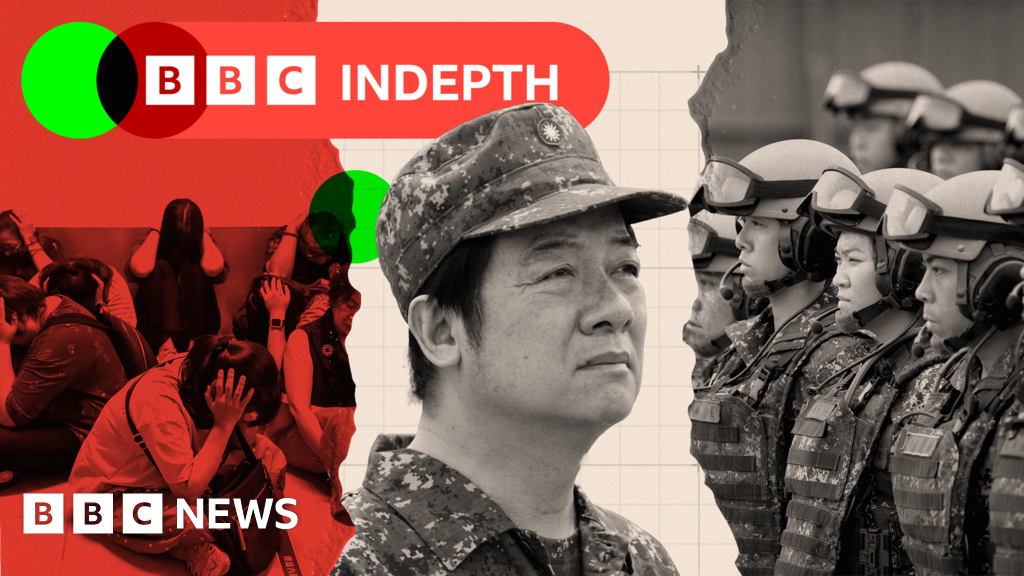It was just another Friday morning on the Taiwanese island of Kinmen, a few kilometres from the coast of China, when an air raid siren pierced the calm. At a local government office, people switched off their lights and dove under tables. Others fled to an underground car park. At a nearby hospital, staff rushed to treat people staggering in with bloody injuries. But the blood was fake, and the casualties were volunteer actors. Together with the government workers, they were taking part in mandatory civil defense and military drills held across Taiwan last month. The purpose? Rehearsing their response to a possible attack by China.
China has long vowed to reunify with self-governing Taiwan and has not ruled out the use of force. It is a threat that Taiwan is increasingly taking seriously. President William Lai, who took office last year, is behind one of the strongest pushes in years to strengthen defence. One of his biggest challenges, however, is convincing his own people of the urgency. While his defence drive has garnered support, it has also sparked controversy.
Most people in Taiwan – 65% according to a survey by the Institute for National Defense and Strategic Research – believe it is unlikely that China will attack in the next five years, despite U.S. warnings of an imminent threat. The drilling exercises, like this year's annual Han Kuang military practice, aim to revamp Taiwan's defence strategies by increasing military spending and consolidating civil preparedness. Participants rehearse scenarios involving enemy landings, missile attacks, and urban warfare resilience.
Despite skepticism, many citizens recognize the potential threat from China. I believe in a peaceful co-existence with China, but we need to increase our defence as well, says IT worker Ray Yang. As Taiwan continues to bolster its defence posture, the general sentiment remains focused on maintaining the status quo, neither seeking unification nor formal independence from China.
China has long vowed to reunify with self-governing Taiwan and has not ruled out the use of force. It is a threat that Taiwan is increasingly taking seriously. President William Lai, who took office last year, is behind one of the strongest pushes in years to strengthen defence. One of his biggest challenges, however, is convincing his own people of the urgency. While his defence drive has garnered support, it has also sparked controversy.
Most people in Taiwan – 65% according to a survey by the Institute for National Defense and Strategic Research – believe it is unlikely that China will attack in the next five years, despite U.S. warnings of an imminent threat. The drilling exercises, like this year's annual Han Kuang military practice, aim to revamp Taiwan's defence strategies by increasing military spending and consolidating civil preparedness. Participants rehearse scenarios involving enemy landings, missile attacks, and urban warfare resilience.
Despite skepticism, many citizens recognize the potential threat from China. I believe in a peaceful co-existence with China, but we need to increase our defence as well, says IT worker Ray Yang. As Taiwan continues to bolster its defence posture, the general sentiment remains focused on maintaining the status quo, neither seeking unification nor formal independence from China.





















